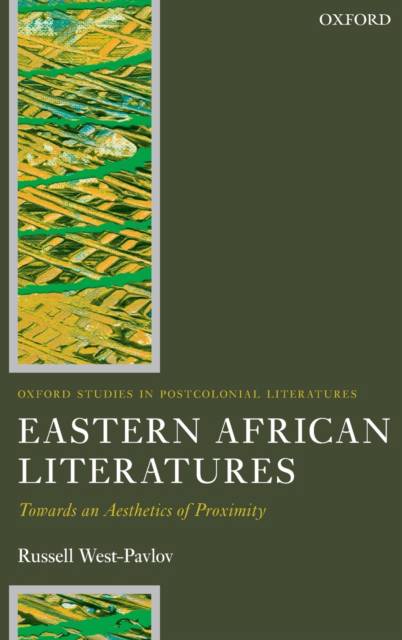
- Retrait gratuit dans votre magasin Club
- 7.000.000 titres dans notre catalogue
- Payer en toute sécurité
- Toujours un magasin près de chez vous
- Retrait gratuit dans votre magasin Club
- 7.000.0000 titres dans notre catalogue
- Payer en toute sécurité
- Toujours un magasin près de chez vous
154,95 €
+ 309 points
Format
Description
The Oxford Studies in Postcolonial Literatures series offers stimulating and accessible introductions to definitive topics and key genres and regions within the rapidly diversifying field of postcolonial literary studies in English. This volume offers an overview of contemporary Eastern African writing in English since the mid-twentieth century. It takes a fresh look at what has been an under-represented regional literary tradition within what continues to be an under-represented continental literary tradition. In particular, it broadens the scope of such an overview, complementing the extant monographs on well-known Eastern African writers such as Ngũgĩ to include a host of more recent, less-publicized novelists, dramatists, and poets. It extends the geographical range of existing studies from the familiar triad of Kenyan, Ugandan, and Tanzanian traditions of writing in English, to include the lesser-known Somali, Ethiopian, or Sudanese, or Mauritian or Madagascan traditions. Rather than simply addressing national traditions or broad thematic bundles, the volume treats works as literatures of a region: that is, as literatures of place and space. Eastern African Literatures stresses the formative role of space, place and geography in fashioning the fabric of social interaction, whether individual or collective, in generating history, in moulding identities, and as a consequence in defining the shape of the future. The 'spatial' perspectives allow the 'proximate' rather than the 'distant' influence of literary art to come into view. Proximate modes of literary communication, arising out of residual but vibrant traditions of oral communication, blend with contemporary media to produce hybrid genres of proximity specific to Eastern African literary production. In this way, the book also makes a contribution to the ongoing theorization of literary and cultural innovation in the cultures of the Global South.
Spécifications
Parties prenantes
- Auteur(s) :
- Editeur:
Contenu
- Nombre de pages :
- 246
- Langue:
- Anglais
- Collection :
Caractéristiques
- EAN:
- 9780198745723
- Date de parution :
- 21-08-18
- Format:
- Livre relié
- Format numérique:
- Genaaid
- Dimensions :
- 137 mm x 203 mm
- Poids :
- 439 g

Les avis
Nous publions uniquement les avis qui respectent les conditions requises. Consultez nos conditions pour les avis.






